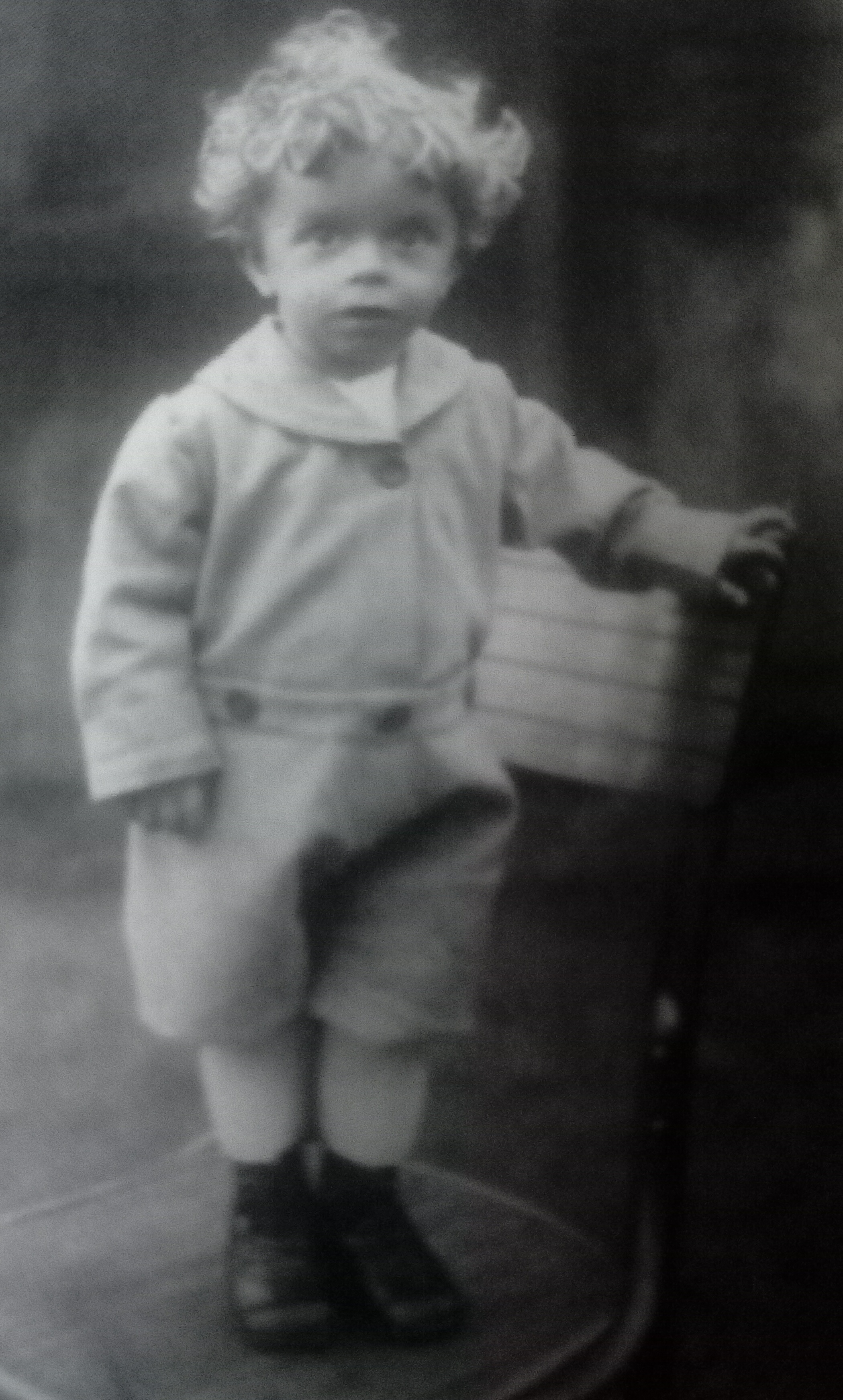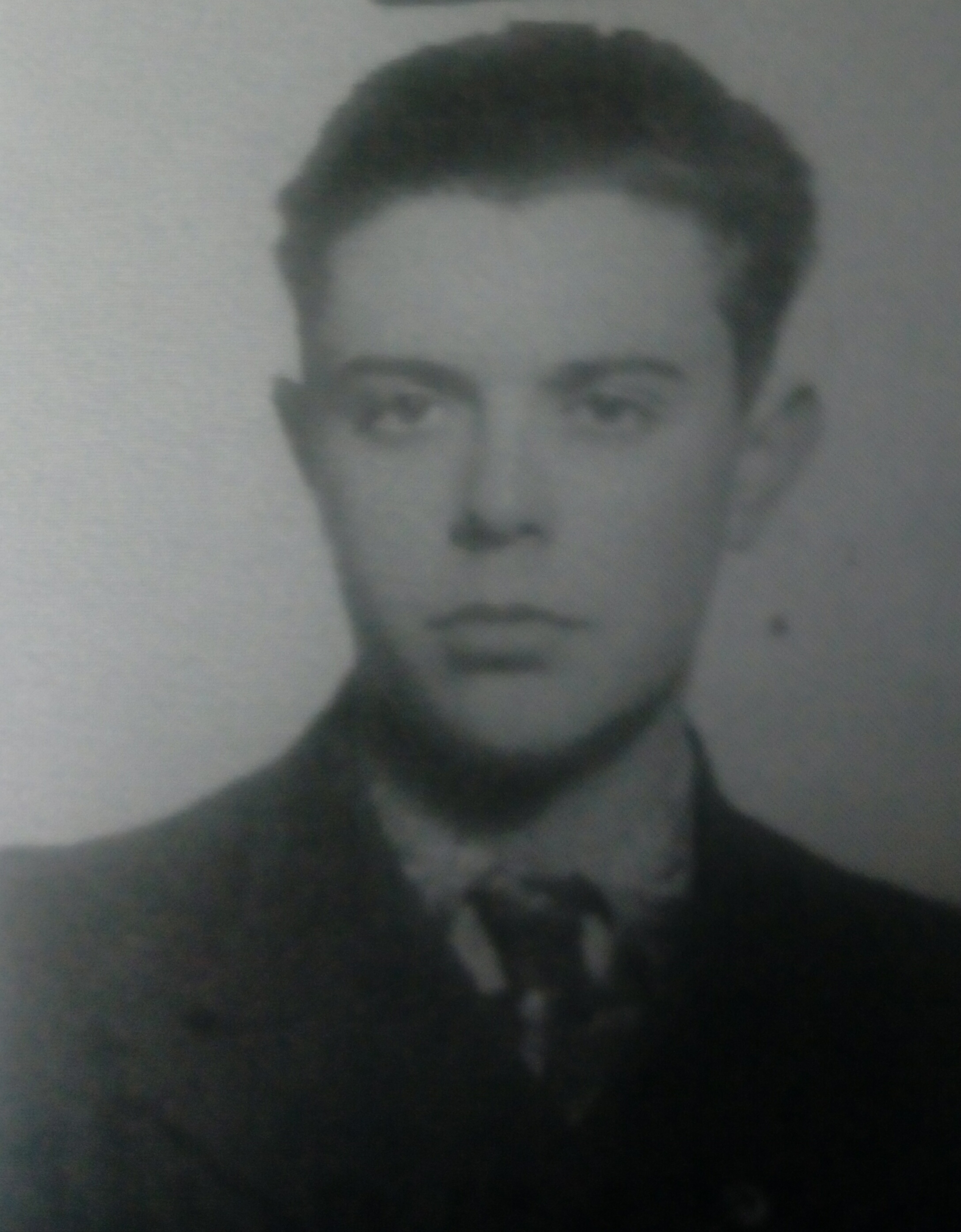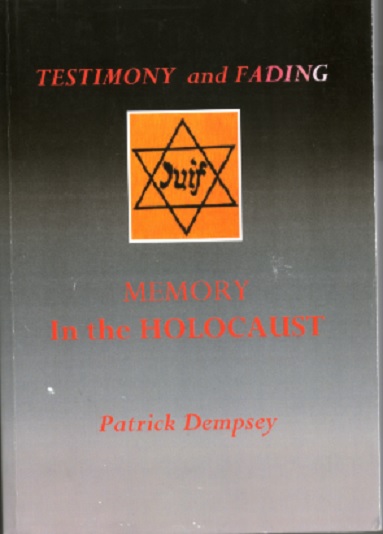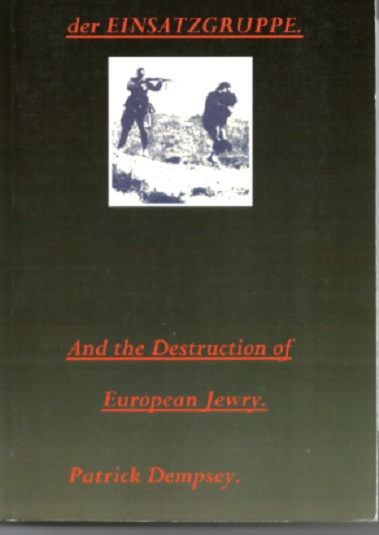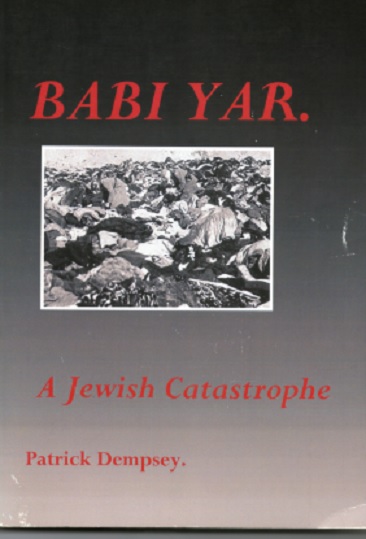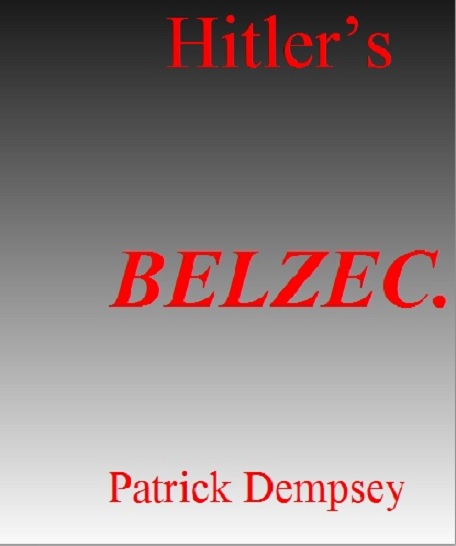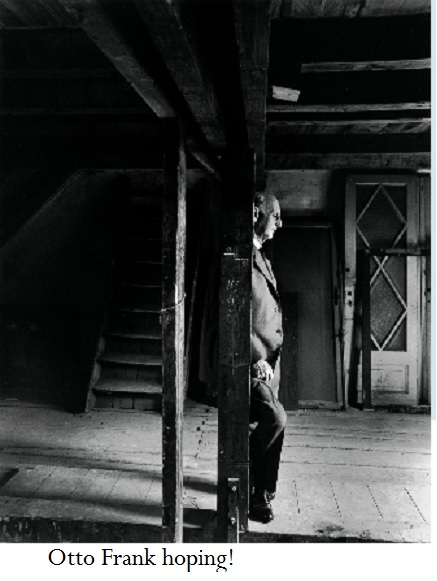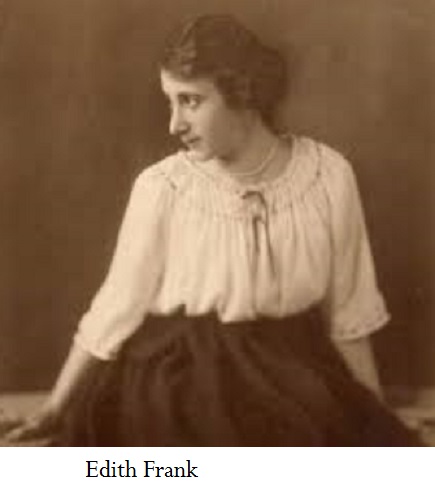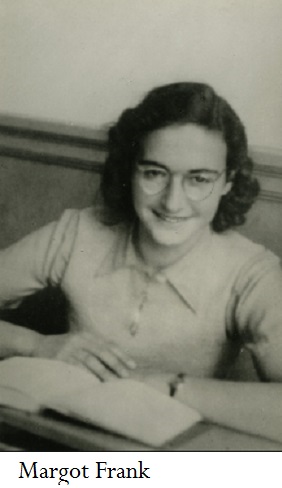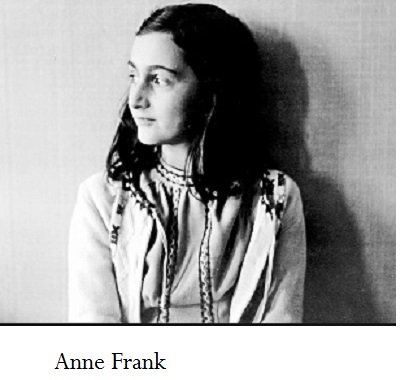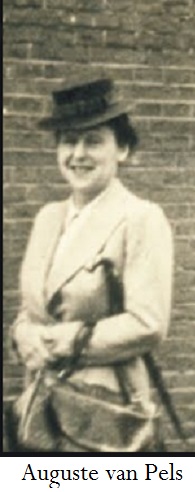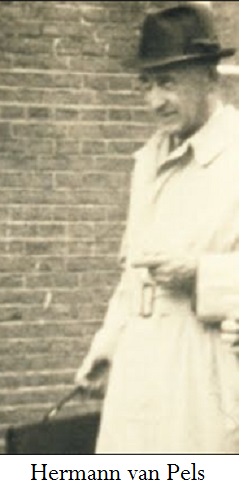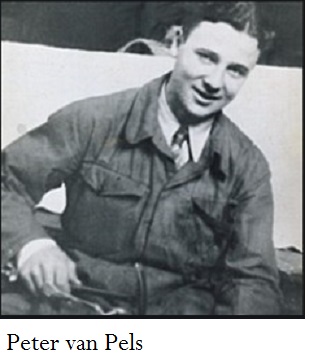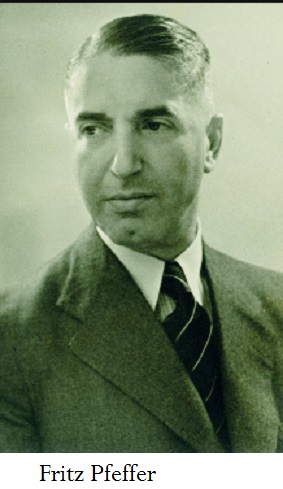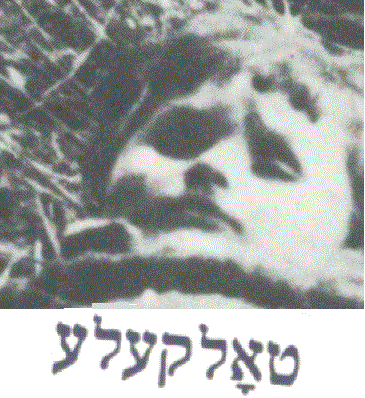An echo of Radzyn
There are countless places just like Radzyn that resonates
with Transnistria and all other spaces dealing in Death for the Jewish People.
There is sometimes the inexplicable that guides my hand, and as I was
interrupted in what I was planning to add to my Monthly blog, I will explain. I
was nearing the finish line of editing my next Blog, a piece on the Jews of
Radzyn and remember, I have no faith whatsoever in anything that pertains to
the mystical. I was stood in Treblinka and was drawn to a Stone, it was for the
Jews of Sokoly. From where my odyssey began, I was standing in a place where
their journey had ended. I was just reading from Felicia Carmelly’s Memoir and
I was drawn merely by an impression that I needed to add this Katzenelson poem beforehand.
So, in order that there is further remembrances from amidst
the terms of the hatred that are being presented I will offer a second piece
for which Ardyn features. I had somehow waited these too many years to read the
Memoir of Felicia Carmelly and had long felt cheated by her passing. As I could
not now have both of her Books signed for me, it was to be my great loss and
was a missed opportunity to inform her too, of my efforts on a Jewish behalf.
This opportunity to meet, greet and share efforts with Felicia was now forever
lost to me! However, I still felt Felicia’s voice urge me on, to recall that
Memory will not allow us ever to forget, and this is indeed a repair process.
The words Felicia has always afforded us were convincing
enough, though I was not ready to see the effect of a repaired memory changing
history anytime soon. I have always realised that I had learned much from
Felicia, all that had been Shattered across a river to the Nistria. For that, I
am wholly indebted to her. For the sense of feeling that I had physically
visited The Holocaust in Romania and then on and into Transnistria, I have
gained such an impression all through Felicia’s work. Felicia indeed has
eloquently and elegantly expressed, in her tikkun olam effort, that this was to
assist a World to repair itself and be repaired after The Holocaust.
Though I see no chance of repair, as Justice will not now
ever be served, Felicia engendered a hope that Jews must persist with. In the
Jewish need to emerge from the utter devastation the World has not adequately
recorded, we too must endeavour to offer up the sticking plaster to hold back
the surge of despair still to be unlocked. I had always hoped Felicia knew I
was on her side, and while coming from the opposite direction, this was in the
hope we would meet in the middle building on her wish to repair the wrongs and
damages done. Sadly, for me, her ability to sign both my Books of hers also
concealed a wish to meet her and compliment her on her work.
This too is now lost to me, but I will always continue. I am
directed to confront the gravest wrongs done to a Jewish Community which
somehow adds to Felicia’s and I offer it as a part of my effort. Though this
might remain a minor recompense to all 6,000,000 Jews shown no respect in life,
death nor afterwards, it is no less my effort. In the beginning, I had not
intended visiting Poland though Paul, a Survivor, convinced me I should do so.
Having survived Belsen, Paul saw death in the camps as not too different as to
how the slaughter in the Death Camps had been envisioned and intended.
What we cannot afford is to lessen the effect of any Death
upon any of the Jewish People, no matter when and where it occurred. However, I
definitely wanted to separate out all the spaces of Death for Jews from the
specific detail of the Death Camps as factories of annihilation. The prime
factor in securing for Hitler’s Final Solution the mass murder of the Jewish
People, to be accomplished on an industrial, managed, and mechanised scale,
were to be within these 6 standalone Death Camps he had erected in Poland.
However, and wherever Hitler found the Jews they would be extinguished, though
not on the resettlement transports to these 6 centres of decimation set aside
for them in Poland.
So, while I was here reading from Felicia’s powerful works,
and I was adding pieces of a poem to the Radzyn blog, I was recognising places
I had been to in Poland, Lublin, Warsaw, Wlodawa to name but a few. I felt too
that there was more in these verses that should be called forward to newer
remembrance. So here I am, further borrowing from the text of words left to us,
so that we too can somehow add to the memory we seek to deliver. I will fully
return to the blog piece on Radzyn, knowing full well that Felicia Carmelly offered
me a further route toward knowing more of what is essential in The Holocaust.
Felicia has allowed me to know more fully of the places I
have not visited, but essentially have come to know through other’s
experiences. Here I can connect with the travesty to face each and every Jewish
Community I read of because others have landed in the midst of them. I know too
that Felicia saw a concern with the contention she felt in letting some
historians seek their own accusation of the Jewish survival. While it is clear
to any reasonable accounting of the period, there is no need for any Jew having
the need to feel any guilt for Surviving. I see only that for any Jew to have
Survived, was against the intentions levelled against them.
Survival at all has afforded us a way to gain their insight
and a clearer expression of the horror and terror which we can barely imagine.
I would offer the Jewish Survivor what Primo Levi tells us:
“..Its not my fault if I live and breathe
And eat and drink and sleep and put on clothes.” Primo
Levi.
So to use a Yiddish term, it is nebbish to assert a guilt
upon a Jewish People whose intended choice did not include survival in any way,
shape or form. For me, nobody dies whose memory is worth preserving and what
the Survivor delivers is a memory of those who would be otherwise lost to us.
Sadly of course, here is where there are countless numbers of these
testimonies, and from amongst the Survivors who I did not get to know. In that,
I have not met all those I have wished I had met and so where I can, I leave an
indent of what I needed to state of what I would wish to have said to them.
Amongst these many lost, the female Survivor is too few and
from whom we are learning from their under represented expression of the
travesty itself. Female Jews, who took the brunt of the overtly perverted abuse
of the Nazis and their collaborators, are too many lost without names attached
to Husbands and even Family’s. Seen as the weaker half of a Jewish population,
they were exploited to the full gratification of the hatred they were forced to
endure. For a vast majority of these Female Jews, wholly discarded before the
mantle of Nazi hierarchy, nothing could prevent nor even hide their searched
out supplication before the overt power of the gaoler and executioner.
Constantly I am reminded, by those I have sought out, in
order for me to learn from their experience, are the lessons of what it is I
wish to know. So that I may pass the lessons along in the hope of somehow
aiding the healing process, I continually search. I was doing a piece on the
Jews of Radzyn and having discovered I am not alone in recognising that Radzyn
is written about, is recognised and is therefore remembered, I add to their
loss. Here then, with a Poem from Yizkhok Katzenelson on the Radzyner Rebbe of
Radzyn, Rebbe Samuel Shlomo Leiner, I am reminded of a lesson Felicia Carmelly
taught me.
In what Judaism recognises in tikkun olam, I too have sought
to attempt my own form of a repairing of the World, which I suggest cynically
will never happen. From the aftermath of The Holocaust I see no way this World
will be repaired, for as long as antisemitism continues the exact the same
hatred which devoured more than 6,000,000 Jews, the hatred will retain a strangle
hold over the lessons we can ill afford not to learn. If, and there are far too
many states in Europe to this day who continue to disown their own position in
the wake of 6,000,000 Jews, and more, Slaughtered out of all existence, how can
we even begin to suggest repair.
“..girl from Holland walled up in four walls ..who
wrote about her childhood without a tomorrow ..her quiet ashes ..spread by
..wind ..her brief life held inside a crumpled notebook.” Primo Levi.
From those like Rachel Auerbach, Felicia Carmelly, Danuta
Czech, Lucy Dawidowicz, Anne Frank, Etty Hillesum, Nora Levin, Miriam Novitch,
Dalia Ofer, Livia Rothkirchen, Nechama Tec, Leni Yahil and Susan Zuccotti to
name but a few, they are my shul of learning and without their need for any
house of prayer to do so. What I have learned of that side of their god has
enlightened me, opened my discourse to their influence and they have placed me
in touch with their Shekhina, a feminity more brutally attacked and crushed in
the midst of the great conflagration. Felicity is one who came back across the
Nistria to deliver to us on the fate of a shattered Romanian Jewry and what
such a term as Transnistria meant for those Jews shoved across the Dniester.
For the Goy, its clay smelted into the ash of more than
6,000,000 Jews it no longer protects, no Jew was shielded from the hatred
imbibed with such ferocity that the malevolence of greed and avarice overtook
humanity. So here, and within Katzenelson’s Poem, these are the sonnets of an understanding
of The Holocaust that share an appreciation of the devastation which surrounds
the Jewish People. There is an understanding that life will never be the same
for those who might just emerge. It recognises that as I read through the pages
afforded us by those like Etty, Felicia, Leni or Rachel, I have much still to
learn in order to present to you, and understanding of why today there are more
like me who would not have stood back.
Song of the Radzyner Dedicated to my Hana
Yizkhok Katzenelson July 1st. 1943
Part I
Introduction
“..I want to sing you a hero song
Oh, don’t laugh at me brothers
and don’t wonder how a Jew
comes to sing songs of heroes?
Hero-songs… yes, like this!
So why are you afraid?
Are hero’s songs only for Gentiles ?
Only they have the right…
Gentiles theirs is the victory!
They, only they are the heroes!
They kill in war
and destroy whole worlds.
So this will be hard for me,
because a Jew has in long years
not carried a weapon
He wears spurless boots,
He brandishes no sword,
He does not learn to shoot.
And clean are his hands and pure is his heart
and clear, clear is his conscience
And if a Jew must shed blood
it is his, his own.
So I sing you the song of a hero
of a very different kind.
Vlodova! True yes Vlodova, yes
a little town like that in the Polish crown
I’ve never been there but I have indeed heard
that a town like that exists on our earth.
I’ve heard it mentioned more than once
along with other towns both blessed and cursed
towns all around, some rich and some poor
towns neglected or proud
strewn over valleys and climbing up hills,
houses of brick, of wood and of clay
no matter of what but warm as a home.
Jews with their Gentile neighbors share
one sun, one sky, one God in their hearts.
A church tower tall, and beys medresh low,
a little store empty, a beys medresh full.
and another beys medresh and another two, three,
a Rabbi, a teacher and faithful Hassidim.
The stores are deserted, the Hassidim house lively
Vlodova! One of many such towns
Vlodova! I recognize the name
but I feel as if I know all of her ways
as if I have lived there all of my days.!
Oh let me go in to Vlodova at night,
lead me there and leave me alone
I’ll walk oh with eyes closed I will walk!
And find that small Jewish street though it be narrow
A Yiddish street is yearning for Jews
She calls me: here I am! She calls without voice.
The little Yiddish street though narrow and small.
is broader than broad and bigger than big
A mother’s lap can it be too narrow? Can it be too small?
A mother’s arm can embrace all,
all the little chicks with her arms around,
she warms them close without a sound.
She winks to me from afar: come, come here.
She winks and lets fall a hot hidden tear
Oh come though my skin is folded and wrinkled,
hard is the bed and dry is the bread
she calls to me with her quiet wink,
Come dear son, comfort me and be comforted here.
Oh Vlodova, poor little town
poor and little? Oh you are not, NO!
Your cast away poor street is rich
with houses of study, with Torah, with Talmud
with questions and answers, of Rashi, and Rambam,
sweet and delicious with stories and
tales of many wise, righteous ones.
And holy the words and noble the language
that is heard in your tents
Vlodova the learned, Hassidic world!
Hassidic world! Vlodover teachers
are young, youngsters still
look, look into their faces and see their core
you look into their eyes and see their soul
the eyes are dark black, their look intense, bright.
Their faces are pale, their side burns are dark
they are sometimes hotheaded, and so warm are their hearts
Oh Vlodover Hasidim none compare with you?
the Rabbi comes out from Radzyn here to you.
The young Rabbi Sh, sh
They’re looking for the Rabbi who comes from Radzyn.
They’re looking in Vlodova, with anger they search
and while they are searching they revile him and curse.
Do not be afraid of a mad dog that barks,
but a German watch out while he curses!
The Germans break into the small prayer house
calling with wild cries for Rabbi to be there alive,
“The Holy Rabbi, you Jews must tell us where he is
”We want to shoot him, and only him”, they confide
“One Jew instead of all! Say where? Where is he?
And we’ll let you live, we’ll leave you be.”
“He’s nowhere in Radzyn the holy man”
“He is among you, here with you!”
The Jews raise their shoulders in fear
“He’s not here with us dear people;
The Rabbi is dead, he’s long gone,” they insist.
“The Rabbi is young bring him right away
and if you don’t bring him, we’ll shoot you today.”
And the people hear this terrible threat
and move out of the prayer house silently
move into the city pretending to seek
the young Rabbi who comes to them
from Radzyn. Oh God!
Time passed and the Rabbi was seen here
and how different the sky was as the sun appeared
the earth became happy and turned to green
The Rabbi, the Rabbi is here from Radzyn!
Breezes blew freely, happily, awake
birds peeped and sang out from the roof without fear
tweet tweeting with joy
the Rabbi, the Rabbi, the Rabbi is here!
Long may he live he lives in this house!
Oh little birds don’t let this secret out!
Oh little light breezes, don’t make a sound
Little green grass blades grow and then wilt.
Sun high in the sky don’t shine so bright!
Until the feared hour of threat has passed
we must all hold the secret fast.
Oh let it be secret, let heaven forbid
let not one syllable tell he’s been hid.
No wink of an eye, no movement of hand,
look mute to yourselves and blank as a wall.
Vlodova knows how, she can keep a secret
But where can this great mercy be hidden?
It drifts in the streets, it speaks and it calls
One hears it, one sees it adrift in the air
It pours into eyes like a radiant beam
It penetrates down into everyone’s heart
It pours itself deep within and without
a holy bright light, splendid, sublime
Vlodova the city and the light of Radzyn!
The honey is tasty and where is the bee?
Can the Shekhina be resting
and God not have been there?
If light begins falling from the dawn sky
can it be that no golden sun is nearby?
Great joy floats together paired with great fear.
It seems what is not known is somehow known here.
It’s known as clear as the dawn appears
The Rabbi, the Rabbi, the Rabbi is here
Do let him live he is still so young
at thirty he’s pure as a child of a year
A year old was Saul when promised to be King
But when it came to pass he was thirty
and pure as a babe.
As it was with our King so with the Rabbi
His eyes like doves, his head full of dew
he came to Vlodova and not by himself.
Vlodova can sense it from end to end.
It senses its ancestors Moses and Aaron
holy forebears from long ago
from a never forgotten past time.
His father, may he rest in peace and grandfather too,
his prayer shawl woven with your heavens’ blue thread
trails him like the sunlight
and encircles the entire city.
Now everyone knows, big and small
they are silent, to each other say nothing at all.
Little birds tweet and peep all kinds of things
but not of the Rabbi -they don’t peep or sing
and winds blow around in and out of the streets
but take care to control their owns sounds
They know a lot but are not sure
what can be said and what not.
Meanwhile the Rabbi has lived quietly
with them in Vlodova for almost two years
no one in Vlodova knows about that
only birds, wind, sun and the Jews
They’re all happy for it and mute in their joy
they bless each other and are quietly blessed
and all are blessed by the Rabbi and his ways
living among them for almost two years
the Rabbi who defends Vlodova as if
he had lived there all of his days.
All quietly praise his name
which is known and not known by anyone
and all live in the grace of his merits.
Two years are past almost two
Radzyn has suffered great misfortune
and Vlodova, she has had good fortune.
The Rabbi’s among you for almost two years
Poland is demolished, ruined and laid waste.
The evil enemy robs, shoots and kills
The raids have hit hard in Vlodova
The Poles have been punished and Jews even more
The more innocent one is, the more certain his death,
and so great is the need and poverty deep.
At home one is fearful, afraid to be there
One hides in closets and cells wherever one can
from day into night, from early ’til late.
We are wakened from sleep and flung from our beds
Who dares move in the street will never come back!
He dies his death there what luck!
And black are the nights and still blacker the days
and tragedy and terror are one and the same
But Vlodova has a weak comfort:
let the Rabbi live to watch over them.
He stands watch. Oh what can a Rabbi prevent, overlook?
A holy man, what can he do when robbers capture and rule
How can he help us, the holy man of Radzyn?
We are trapped, bound tight in a spider’s dark web.
She has woven us stuck and locked in the dark
Oh Rabbi how does it help us that you keep watch?
What good does it do that you raise your arms high
to the high heavens so far away?
They are as locked there for us just as locked here on
earth…
Your lip Rabbi trembles, your eyes full of tears
you pray hard for us great man?
Is there any way that we can be saved?
Do you not know the suffering? Do you not see the poverty?
the old people murdered, the young people killed?
We all are condemned to death by our foes
no one knows who dies tomorrow, or who dies today
You guard with great love and great your desire
but how does it help that you watch over us?
How does it help us that you stand watch and pray?
We are now just a few who once were so many,
We remain now as though we never were here
And God, our God as if he would not see
As if He never heard and He never knew
How empty the streets, the houses deserted
One sees no old person, one hears not one child
The wind tears through open doors
they open themselves and close themselves too
Where are they, the Jews? Oh don’t ask me where?
The doors open up by themselves
No one is at home and crying is heard!
One hears the crying and sees no tears
Tears that are hidden pierce even more
who cries in the Jewish home day and night?
When everyone there has been killed!
The wind is crying does not want to be there
these are cries of wild wind that rip in and out
rip with wild haste out and in
from street into houses and houses to street
Oh Rabbi, you stand guard it is of no use!
My street is orphaned, my home is destroyed
Here one sees no one old, one sees no one young
Out on to roads they have sent me blinded!
They’ve sent me naked out into the street,
shot in the market place, poisoned with gas
into forests and fields far away I’ve been led
packed into wagons, then set ablaze,
squeezed in tight like close cabbage heads,
sealed, set aflame and then choked until death,
old ones and young ones all go together
Hey, make way! The death train rides!
And if there’s a station, the train will run past
It goes on without stopping through fields, rushing fast
No one steps down and no one steps up.
Where do you go cattle cars?
Say where you go? To death, to mass death
without trial, without law
without law, without judge
Who is knocking? Who knocks?
Is it the train? Or Jews in the train?
The Rabbi, he stands awake and he guards
quiet his gaze, and sure are his steps
He is so young and strong as a giant
and faithful and pious as can be!
Oh Rabbi you are not at peace, I know
you have broken out in cold sweat
You are not so sure, no you are not!
Why do you look around with every few steps?
And young though you are you are not so young and strong
your forehead is wrinkled and bent is your neck
If your father and grandfather, both of them great
came out of their graves to stand beside you
Oh young little Rabbi, you are older than they!
Your grandfather wove the holy prayer shawl
Your father did he ever live, see or imagine
that which his son on this strange earth has seen?
A shudder goes through our bodies so cold.
Oh young, so young Rabbi and already so old!
Oh holy Rabbi, you stand quiet and watch
But you are not calm! You act as if you are
very calm and so sure. But you are not certain
no longer sure. And you are no longer
young and no longer strong.
You lift up your eyes and your hands to the heights
you still believe. To whom do you lift your hands?
Wring them in sorrow and beat, beat your loins!
Tear your hair out of your head in despair:
and let your tear filled eyes look down
Oh devout Rabbi you no longer believe!
Do not show the heavens your hot tears
Don’t open for Him your broken heart
And show instead your faith, your pain
Pray no more in silence be mute
Oh devout Radzyner, you’re no longer devout!
You still love your Heavenly Father, you do
In your goodness forgive him, do forgive him,
He sees the death of his people
and is as helpless and powerless as you
He stands guard say who would -if not he
would stand in the dark night by the ruins
of the broken shul? If not he who but he
the Radzyner has the strength to stand open-eyed
to see the downfall? The shul goes under
Who sees it? He sees oh Rabbi save yourself!
Save yourself on a board
A little board, just look, can swim over to you
grab on to the board, swim and don’t ask where to
The wish though wild, without way and path
will surely lead you to shore somewhere
So sit yourself on the board and run away, run
wherever you land you will be welcome
They will hide you just as holy Torah is hidden
O Rabbi you are older and holier still!
You are like the Torah and you’re still something more
the Torah is immense. A Jew is still more
Oh don’t stand Radzyner, don’t stand by the ruin.
I stand. yes I stand. did someone laugh here
Who was it who said that I stand guard
who laughs at the Radzyner Rabbi? Oh who?
Who laughs and quietly sheds a tear?
It is laughter mixed with cries
the Radzyner alone, the Rabbi himself
it was he who laughed, laughed at his fate.
A hidden Jew at this place stands guard
and while hidden still makes fists with his hands
he would have pulled a sword from its scabbard
in hiding here he would pay back the Germans, the wicked
ones.
He balls his fists and gnashes his teeth
Who laughs here and cries? The Rabbi alone
He reminds himself hidden: I stand by the ruin
I stand here and guard and he smiled
Here I stand guard, here’s where I watch?
The Rabbi! Then the Rabbi did laugh!
And lets fall a hot tear there oh woe is me!
To stand like this so helpless to be!
News comes from Lublin
from there to here and here to there
news that makes you turn cold and makes you turn hot
that falls like thunder and cuts like lightning
Lublin! The crown city the mother city
the old one, the faithful, the Jewish home
the city of the Jew, of the old printing press
Every gemara sends us regards,
the spirit of Noah reaches out wide
the old one, the Torah is Lublin renewed
The old one, the Torah, new in her dress
Lublin sends you a bride to be kissed!
Lublin gazes at Sinai and
sends old celebrations into new print.
Lublin! Oh the news that arrives
to the Rabbi. What can be done?
What to begin to do? The news comes
that Lublin is ravaged!
The Rabbi lifts his arms skyward
then wrings his hands.
Lublin, the old Jewish holy city
Lublin she is doomed oh God save us!
News comes freezes your blood
What can be done? He doesn’t know what.
the Rabbi stands in a corner and hears
what is happening to Jewish Lublin
What has been done to its Jews his worst fears
He smiles the Rabbi, still he smiles.
The smile is bitter. The tears are salt
They drip and drop, he is not aware
tears escape to his brow, from brow
to his cheek, and cheek to his beard.
He stands frozen stiff in his place and
suddenly the Rabbi cries out through his tears
Father in Heaven I don’t stand alone
We stand here we two standing guard here
You too look to Lublin from afar but you too
are hidden as I am here you look on
just like me and you cannot do anything
for your people
I do not watch here alone between the walls
You too and the Rabbi wrings his hands.
Father of All, what do we do? he asks
and looks around in doubt and in fear
Why does he raise his head up and look up to Him
He too is hidden here with him He too
wrings his hands in his grief
the Rabbi again looks around and
jumps up and grasps his head It is
because of me, for me you are here! He
watches over me, to save me you are here?
Oh dear God, great God and he runs to
open the door: Out! Go to Lublin!
Lublin needs you more more who
am I compared to a group! A whole community
of Jews is far more worthy. Go Go
help your Jews and save them!
You drive me away? Do I imagine that?
Or does Rabbi hear His voice loud and clear
you drive me
I drive you, I drive you yes yes!
To Lublin to Lublin! I don’t need you here
Obey Moyshe Rabenu’s request, obey
Dear God go save your people!
Radzyner! You are wrong not enough
that you drive the God of your people to battle,
I can be in many places with you here
and in Lublin there with them and
help in all places – I can yes I can
I’ll do it
But the Radzyner he must not see
He need not see so far away
You drive me out you have no time
you stand on hot coals and burn
you do and make whatever you can if you can
and rave if you cannot
You are my holy my very good Jew!
You yell at me and stamp with your foot
and drive me out of your place
I will take it with love as do you
and like you I find in comfort in trouble
Don’t beg me, command me I love your command
you are for plain Jews and I here, here I am
for the future that is yet to be I am for Radzyn!
Part II
Radzyn! What of Radzyn? And Fshiskha and Ger?
Little towns in Poland, no longer are there!
And the Rabbis? One cannot deny Holy Jews!
A holy Jew is one Jew and no more
and one Jew may be big, or may be small
and no one comes to stand with Jews much at all!
Ten Jews for a minyan! And more are a tribe!
And for twelve tribes a sea will split in two!
And God Blessed be He comes down to them
and God gives them a Torah and Tablets Two
leads them through the desert and gives them a land.
They blow the rams horns and cause walls to come down
and sanctified are when they come into the town
They do not touch a thing, all is for God!
Only one Jew. And one alone sins.
He may be big. He may small but is one!
He may be strong or he may be weak.
Blessed may Jews be many of them!
Radzyn! What of Radzyn? Yes I really was
a Rabbi in the town of Radzyn
My tribe like the town is both old and fresh.
In the house of my father I led his table!
My grandfather’s talles I pulled its blue thread
I would have kept pulling that light bright thread too
But that was not what I wanted to do
Radzyn had become too small for me
not what I wanted, not what I longed for.
Oh little Radzyn is not really small
so many Hassidim God knows, not small at all.
Radzyn had a fine reputation for years
people came by train, by cart from everywhere.
They came to Radzyn from all over the globe
Hassidim no lack of Jews.
Dear Hassidim and loyal too
So what could be more an ordinary Jew is more
many Hassidim though great in number
Jews we are all here at once!
Radzyn! What Radzyn Warsaw! She! She!
The Rabbi tightened his lips and whistled quietly.
Warsaw! It is she that I want!
The Rabbi catches himself ashamed in case
someone heard no matter
Warsaw like Rachel and Leah a city
he compared her to the ancestors who had Jews in their
bellies!
In her they float and ruminate.
Jews in hats of all kinds no matter
no difference as long as a Jew. They
may not be observant or they may be
observant but Jews the Rabbi looks around
a Jew half converted is still a Jew
So that’s what I want
Half a Jew weighs more than a whole Gentile
A whole Gentile is generally not whole
A whole Goy is not whole for he’s missing the half,
the suffering and broken part
He’s missing a sorrowing heart…
When he is in a dark mood does he care?
does he think of the Jew full of worry
at the fair?
He harnesses his horse and rides off in a hurry.
The Goy lacks great disaster. God send me disaster
For after a disaster comes joy. The Goy
did not slave in Egypt and was not freed
He doesn’t carry a heavy yoke, burn bricks
knead clay. He lifts not his eyes longing for home
though sweet is the dying for His great name.
A goy doesn’t know or want to know that.
He was not driven out of his homeland in shame
his conquered wrecked land
He did not go into exile in shame
and does not suffer injustice from strangers
He lacks troubles; suffering
a half of a Jew therefore carries more weight.
A goy weak are his thoughts, strong his language,
weak in his thinking but moves easily about.
Strong in expression and light in mood
Did you see him at the fair?
He sits on the straw covered wagon secure
And Jews encircle him and shout,
but he doesn’t give value for what they paid out.
and all pay him and make him rich.
This one pays him one coin and that one two
for hay on the wagon, a fowl in the cage
for potatoes in a sack a Jew loves
to buy things, he’s ready to pay.
But the goy’s not always a salesman and he’ll
take the pay but keep the hay
Still it’s good that he does not talk with his hands without
end.
He might kill a person in the heat of a row
with an axe in his hand
and still not be found guilty you wonder how?
Because he doesn’t talk with his hands like a Jew.
Lucky is he who is experienced and proves he’s a goy
for he does not wave his hands in the air.
A whole goy is not whole
He is like his cloister so big and so mighty, a giant.
He is like his cloister arrogant and proud
hard as its gates and stiff as its wood.
They carry a cross of gold on their breast.
Decorated outside and empty within
dark inside and polished without.
The goy is like his cloister not whole
out of him comes the voice of a stranger
and cold is the prayer and cold is the house
sounds like an echo from an empty barrel
Not his the love, not his the hate
You hear what he says and know at once
if he comes from the priest? The bar? Or the forest?
A Goy is like his cloister, a Jew is like his shul!
Outside neglected and inside full!
See in the synagogue see for yourself
Open a door and come, do come in
a light floods you with warmth
a great light.
Warsaw a big house of study in joy!
In streets and in squares all spread out,
in yards, cellars and attics up high!
Your breath is felt, the warmth of it high
In Yiddish Warsaw throughout the whole city
one big house of study! Not just for God
it is more for his Jew, for his daily use!
The Shekhina she rests there for sure
The Jew is there but most important, the Tanakh.
It’s a house not for Sabbath. Its more for the week!
You come into this holy place
and let yourself have it on a week day.
Go slowly by there and stand anywhere
see the movement of hands, the head how it moves;
one to the other swears and fool one another
But you, do not fear and don’t be upset
I swear it is legal so don’t get mad.
So one fools the other! the other fools them
but they have never killed anyone, yet.
I love a House of Study and not just because
the Holy Ark that I love is within
and that the Torah is crowned and wrapped
in a silken coat You say what you will!
In the small space where I live, I hope
to stand holy and clean and it’s
not a house of study, oh no. The Torah yes, yes,
is honored in its place but where I
live there is no community of Jews.
This one can’t stand and that one can’t walk.
This one cannot take a book from its shelf
and the one who hums while he
learns under his breath. One hears no
news from a circle, no one throws
his prayer shawl over his shoulders
and lifts his belt up higher, or stands at the
washbasin washing his hands, or thanks
God for natural processes. No one
looks around silently to seek a small
interest free loan and no one is buying
or selling a house! It is not a
Bes Medresh, a house of study and prayer.
The Torah! of course not me and not you
The Torah! The Torah! It all depends on where
the Holy Torah resides and with whom
Could be in an attic, a cellar, could be,
in a hall in a palace. The important thing is
to do what she tells us all to do.
Down from the sky she came to earth
Lucky are we who received her!
She alone is Sabbath and speaks holy words.
Don’t climb up to Sinai. One hears her in the valley
She lifted us up and came down.
The main thing is to guard her
the Torah, protect. And listen well
to her again and again.
And the Sabbath will be
a needed part of your week
that lifts it up
The week is raised up and Sabbath is gone
The week needs the work of repairing the world.
You are needed to help in the week
poverty is made less by your help
Sabbath in the week can bless
as God’s breath into the first person.
One Shabbes balances the bustle of the week
Oh Warsaw streets! Gzhibon and Tvarda and Gensha
and Smotche! Blessed be their buzz and hum.
I disappear there and become nothing, no one
and more in a street full of Jews
What am I and who?
Up Marshalkovska and higher on Leshno
where once I was a Rabbi, a person!.
Not erased was I heaven forbid.
and not denied by the non-Jewish street
By non-Jews a Rabbi, by Jews no not!
I love to be mixed in the midst of Jews
A Jew needs no Rabbi he can reach understanding
together alone with his God.
The Torah is the same for all the Tfilin, a pair,
the very same Gemorah no different by a hair
A hard law to interpret? He presses and tries
and then understands it
And ask me: do I need to be the go between?
I’ve no need for the honor, what for?
Warsaw, oh you are the apple of my eye.
Jewish Warsaw is waiting I wash my hands
Blessed is the hour I recognized you.
I recognized you and blessed is the hour,
Jewish Warsaw there is no other!
I know no other though Warsaw is big,
do not confuse her with Jewish Warsaw
When seldom I ventured down to the non-Jewish part
I covered my head with a shtreiml
Whether in my own home, in the street or in the shul
my hat I would wear I loved to have
a Jewish hat on my head it’s light and it’s small
and that’s what Jews wear and in that lies it’s beauty!
That’s why it’s holy I want to be like you!
With my heart, with appearance equal to you
I don’t want to be wine from the flask of the drunk
nor golden coin from the wealthy man’s purse.
I want to be a salted drop in the sea,
in the taste of Warsaw.
Warsaw! Like David to Zion did his praise sing,
I would for my Warsaw do the same thing.
Warsaw! I long for Warsaw I long
for the Nalevka hub-bub to the Gensher crowds
and Murano! and Djuka! and Mila a breath!
I mix in with the crowds go find me!
Show me a trick search for me and find!
You cannot recognize me, my faithful Hassid
You don’t recognize your Rabbi so why?
So what is the difference?
You don’t see me so what!
Take just any Jew by the hand
put a shtreiml on him, oh my little Hassid
and he’ll be a Rabbi with luck for you!
But don’t ask him why him and don’t ask him how
Put on him a shtreiml and a gartl too
He may be a tailor, a shoemaker now
Don’t ask who he was yesterday do not ask
don’t search for his vocation or his tone.
Catch a Jew, any Jew, and call him Rabbi! It is in his core
Call him Rabbi! And follow him
Warsaw! I really mean Warsaw,
the Jewish view, the Jewish beauty
that flows over all, all at once
and especially outside the stone of a wall
calls out! Holiness! a stone! yes a stone
Listen, listen, you understand Yiddish? Here’s what I mean
that even on stones from pavement
she rests the Shekhina Look, look
and be glad and go close and feel, touch them,
they are like Jews it doesn’t hurt them
A Jew, if you rub up against him is for himself and for you
In case one of you has a wound
a blister to hide, doesn’t matter how big
it will burst by itself and drain itself out.
Drain yourselves out secretly in deep sleeves
don’t hurry home from the street
You are joined in a debt to each other
Get acquainted, get to know and do business together!
Argue together, it won’t hurt, it dries the wound,
You both will come home both healthy and fresh.
Wrangle together, bicker, it won’t hurt a hair!
If you make a mistake, well, you are learning!
You jump up from your benches
look sore at each other
is this about a law or money in millions?
Whatever each of you meant
to the study of Torah its all the same!
You struggle to understand and turn
things around
And use your thumb to twist and consider
and find proof that supports your claim
And argue and come to some conclusion
and learn the passage
Whether its Gemara or matters of women
the process of learning is the same melody
you jump from your benches
stare mad at each other
you find the right page
you pull your own beard
and hold your head then anger leaves
the deal is made and you agree to sum up.
Warsaw, Jewish Warsaw, a Jew
glows with excitement walking her streets
and feels the heat approaching
like Moses to Sinai you have just seen Sinai
But before you come closer to him, look see
It comes toward you you too are a Sinai!
slender as a thorn and dry as a stem
your eyes are bright with the holy flame!
It burns, flames up strong
lights up part of the city like a part of Mt. Sinai.
You stand in its light and look into it deep
Look upon Warsaw, take in its radiance
and know, understand it what it means
to the little dot of a Jew in the grand span of time
the eternal Jewish people in every wild desert
and know, understand you yourself who you are!
The Jew of old is still the one of today
and the long ago first is like the last!
Warsaw! the golden Yiddish core.
Do business and make a L’khayim, you may!
A Jew when he buys, sells and drinks
is like a happy student of Torah.
He trades with gusto and drinks that way too
bargains when he buys and when he sells
down a coin, up a coin, that’s how it goes.
The shelf can be empty and the pocket be full.
Call me, I’ll come to your bottle of wine!
Call me for a wedding, call me for a bris
call for more business, why not?
Warsaw people! All that you make and all
that you do is holy, is fine and is good!
Bring the schnapps bottle here!
Don’t look for the cork the bottle is open
and my glass is filled.
I open it easily, the bottle that’s corked.
Easier still to open your purse. No need to
open it already was! Before I could say
it happened! It was not you alone
who made a good deal,
but lonely and sick little orphans
schools and hospitals profited well
people who’ve lost their fortunes
from here and not here, they too
have been taken care of.
Now I open a door and meet at the table
a row of Jews, more poor than rich
For the rich there is herring for poor the fish
Wash up and enjoy it all of you!
Drink l’khayim drink wine.
You didn’t make the good deal this time
God Blessed be He He made the deal
Blessed and Praised be our God.
And now in this great disaster of ours
Warsaw is a solace that comforts us.
She shines out in the darkness surrounding us.
There is no place where we are not being destroyed.
The entire province is one bloody bath!
All Lithuania, Ukraine and Russia oh God
You are left alone here, alone in the world
Your people don’t live here their tents have been burned
Without a beys medresh on earth here
and without Jews without Jews what will You do then?
Who will recite psalms? Who will quietly weep?
And who, who will suffer though innocent here on this earth?
Who will lift eyes to heaven? And You
Your comfort to whom will you send? Say where and to whom?
Who will then want it? The Gentiles will not!
And Jews? Will a murdered Jew still need your comfort?
Your sunshine Your comfort will fall
wasted on graves, wasted on fields and on pits
Only Warsaw still breathes a bit free.
Oh now in our darkness God stand by her, our mother.
Warsaw she calls me, she sends for me now
Autos come, autos go: oh don’t stay out in the country!
“Why do you need me? I,
I alone
I need you more but I will not go,
into the ghetto pressed hard in tight crowds,
where you do not have food and do not have drink,
They die in the streets there and when you pass away
the dead are thrown into the street.
And great is the loneliness and terrible the need
But Warsaw survives, she’s stronger than death,
She doesn’t need me! I’ll not go there
News comes here to me from Lublin
I fear Lublin no longer has need of me
Lublin is being erased from this earth
some houses remain the stones as well,
Jews there, they go up in smoke
or they’re gunned down or put into boxcars and whew!
Away into wastelands in fields where? One doesn’t know
I’m not going to Warsaw with you
I have a funeral and the Rabbi takes his head in his hands
Part III
I have a funeral, Lublin is demolished
The Torah trashed, shuls smashed
Jewish houses and homes laid waste.
The sun breaks into windows in vain
No one is there to benefit, to enjoy
the light of the sun’s warm rays.
No one to thank your name and say: I believe
in your mercy that comes with your great light.
But Papa-Father how does it help you
to send out your light clear down to here?
No one is here now, no one any more
except those shot right here in this house.
They still lie in bed just as in a grave.
In their own bed and in their own blood.
They lie now, lie silenced, at peace
Wasted your light on the dead in bed
wasted his kisses, wasted each caress.
Your light, great God falls wasted like my tears.
Their eyes never will open again!
It is so in the houses and out on the streets
Oh streets of Lublin, how red and how wet,
wet with tears, red with blood
Lucky you dead ones, you now have it good!
Pieces of brain from a smashed head
look down at the dead one from a thick wall,
look at him without thought, cold and strange
Oh Jewish brain you are so dull!
You had hotly just thought, now burned and over
It’s good for him now, this dead one, this Jew
though his blood is still warm and still scarlet red.
It’s bad for the dead ones who are not yet dead,
who must wrestle with death in great pain,
in the street, on the bridge neither here nor there.
They lie on the border of lies and truth
gunned down but not totally out
Oh lying life, extinguish us now!
Take us, death, who is truth, into your lap
the German intentionally did not aim the shot well
Lucky the Jews who are dead!
It is so in the streets, so in the markets
People on the run wringing their hands, necks bent forward.
Mothers and fathers, daughters and sons
where are you running to, Jews, oh tell where?
If we knew we would tell you,
they pursue us no one knows where.
The son is hit by a bullet and sinks down
the father runs on, does not stop
the skin and bones mother is hit, falls like lead
the daughter has seen it and runs on
No one is chasing you! They chase us, yes, yes!
They shoot from their autos, one shot and gone!
Gone is the auto, gone the SS
gone is the Jew a corpse in the street
Lucky is he who is felled in the street, in his yard
in his house, in his bed, on the steps of his house
died, though not buried is gone!
Gone gone who can make peace with this kind of death?
A tallow candle has gone out with its wick.
A person, dear Father in Heaven, NO, NO!
A person should leave his bones in the earth!
A person should have his little hill of dust
to shed a tear there and be praised
his name to be read off in time from a stone
Don’t allow it dear God, oh NO!
Don’t let them be abandoned on cobblestone streets
You don’t look at Jews who live,
and the dead the dead lift
extinguished eyes to You endlessly.
Consider the dead ones, the Jews woe, woe
See all of the streets are full of them,
all of Lublin! All streets, squares and markets,
abandoned corpses form Jewish mountains!
All of them killed, countless slaughtered
and all cry to you in one voice:
“You don’t help us in life, in our need
Be merciful God to those who are dead!”
In sorrow the Rabbi lowers his head
and his tears fall down heavy
Why does the Rabbi cry?
And why does he bow his head so low, why?
Don’t bow your head low
Lift your eyes and cry!
And let the walls melt here from your sorrow
and let everyone see the flow of your tears
Oh, don’t bow your head down
do not mourn quietly what happened here.
Do not stifle your deep sighs.
Do not hide the pain
Sigh sorrow out loud, cry out your pain, rave and shout!
Scream suffering far, call loud to announce the disaster!
Let your scream split the earth, make a hole in the sky!
The devil will come out, and God will come down
Oh, don’t bow your head
Don’t hide your tears! Cry out! Be seen!
Let it be shaken, the whole sick, sinning world,
and let it be mirrored in your tears.
Oh no, do not bow down your head.
The Rabbi starts crying Oh hide it don’t cry!
Hide your face, so the world will not see
the world, oh the world! The poor world oh
She could, God forbid, still be shamed!
fool herself with a story
She did not conspire,
avoid evil nor witness the joke
Her conscience might plague her Oh my!
the conscience of the world is not to be found
Germans do what they do, the world sees and stands by
Which one is worse? What say you!
No don’t lift your bowed head, No, No
and let the world not hear how you cry.
Nor mirror her dirty self in your tears.
She loves the prophets, but loves sin more.
There is white in her eye, her soul is dark
she sins all the while she beats her heart.
And vulgar her thoughts while noble her speech
In her hand the Bible, in her heart seven horrors.
O do not raise your bowed head
And let her not see you, the world as you cry
The world oh the world who thinks of the world,
gone, not a sign of her in the tent,
the Rabbi’s tent meanwhile is left alone.
No one is within, only God, Blessed is He.
The Rabbi, the Rabbi, he breaks into tears
cries before God and does not care
if the world sees him or not crying there.
He denies the world, the mysteries hidden
He denies her as she denies his God
to whom he has hung down his weary head
He cannot, the Rabbi, witness God’s suffering,
he cannot look into His face
His face is clouded, His heart full of grief
the One On High, poor one, feels ashamed,
the Rabbi cries softly, he can hardly be heard
He has, the Radzyner, pity for God
who cries and God chokes on his tears
and the Radzyner bows his head low.
Now from Warsaw a messenger comes
He enters in silence and sees
the Rabbi the Rabbi a broken sail
who does not see nor hear him So he waits
then goes to the Rabbi and says quietly
“Ride, Rabbi to Warsaw, the car waits for you
a closed car and very secure”.
“I won’t go to Warsaw!”.
“Go Rabbi Go!
The auto is standing in front of the house
The chauffeur is German Come Rabbi, go out,
and ride to Warsaw with us, Warsaw waits.”
The Rabbi is angry, his answer is harsh
“I will not go to Warsaw!”,
“Go Rabbi, Go!
The auto is here and there is money too.
The road is secure, the danger not great
yet should something bad happen we’ll buy our way out.
We’ll take you to Warsaw. Warsaw awaits.”
“I’ll not go to Warsaw I have a funeral” and he bows his
head.
“Oh Rabbi the auto awaits at the door
and Warsaw wants you oh Rabbi, woe’s me!”
“Warsaw awaits me, Warsaw the city!
I’ll not go alone when my God hears me!
If I were Jonah, the prophet, I would go
to Nineveh yes and would want to
rescue the Gentiles
Warsaw, however is not guilty as she.
Warsaw, my Warsaw does not need me
Warsaw wants to save me, she wants
to take me away quick and in secrecy.
She sends me a car and gold here.
Here, give the gold here and more give me more!
I need all the gold I can get.
They should send me more.
I must rescue the dead a dead Jew
yearns for a grave, wants to be covered with dirt
wants to have peace go into his rest
Burial money, Jews, send burial money to me!”
His stature and the clear bright blue eyes
Is this the Rabbi? Or is it a Goy?
He’s in front of the small forest, the one going dark.
And the Rabbi has rolled up his sleeves!
With a shovel in hand he works there, he digs
with the Jews who’ve just survived
together with them, he digs graves
in a little forest, a big cemetery.
The corpses are carried and more and more come
they lie like trees chopped down into moss,
they lie there and wait. A grave in the woods
does not dig itself fast, nor so soon.
The number of corpses grows in the woods
the eyes glazed, the faces like wax.
The mountain of dead grows high into sky,
The sack filled with gold slowly shrinks down.
The last holy martyr no more carried there
the sack has been emptied, empty and bare.
All this has taken from dawn until late
one sees them the mounds of earth there.
One sees they lay separate but close, oh so close.
And every mound speaks and demands and demands
we don’t demand anything, we lie calmed and soothed
died and were buried, now we are well off
Now thank God we are through being punished
The tree branches now sway over them: sleep
Sleep, millions of Jews choked and poisoned,
wish for a handful of Jewish burial sand
We were brought to a Jewish burial ground
so sleep now darkness comes falling together with night
and quiets the suffering and silences woe
Yisgadal! Oh who will say Kaddish for them?
the Rabbi, the Rabbi, he says it
Swiftly a wind comes, blind unseeing
it carries and blows the sad words far away.
And Jews answer into the wind and they cry.
The Radzyner alone, the Rabbi himself
the Rabbi says Kaddish and someone is crying
Who cries? Who is crying into the night?
We have brought our dead people to Kever Yisroel
and you, you, you live
Don’t cry and do not bow down your heads.
We’re not crying Rabbi, we rejoice silently
martyrs who are buried do not ever die
A mother’s womb or a mound of earth
we celebrate, Rabbi, what is meant for us
to have been rescued and to help you, yes
to bring those who lie here to Kever Yisroel.
We rejoice Rabbi and remain standing still
near the Rabbi wrapped deep in the night
The Rabbi he can’t be untroubled, serene
He listens intently and hears, hears the sounds.
Someone cries here surely not the dead,
and those who survived, they sit here with us.
The peasants have left us to go to their homes
Who cries, and so hidden, so secretly?
Does it come from the mountains or come from the valley
The Rabbi is following the crying sounds.
He does not see the path. But he feels, understands
the Rabbi knows it, the path that he takes
He goes toward the fields and there he stands.
At once, the moon becomes bright
out from a cloud, thick and radiant rays
light the long lonely train with a light, blue and cold.
Box cars like graves stand opened and bare
every box car with its wide open mouth.
The Rabbi observes this in the pale shine,
no one is inside yet it is as if someone is there.
Inside someone’s crying: the Rabbi inquires!
“Who cries there say who?”, he asks and enters the train,
and in its darkest corner he stood.
A figure in the darkest corner is there
silent and hurting. He stood listening
to the crying of God Himself
the Rabbi remained standing still, a very long time
deep in the empty dark railroad car
the Rabbi did not move a muscle
To his God above he listened and bravely heard
God’s crying
Silently he stood and said
not one word of comfort to Him.
He doesn’t want to comfort His suffering
More important to him to comfort the mourners
Jews shamed and despondent on God’s earth
The Rabbi continues to hear more and more
Rabbi you stand in one place you try to go
to the second railroad car and hear Him crying there
and the third, the fourth, and further go
hear how with each car, the further you go
the more bitter the tears. The greater
the pain, the deeper the lament
listen to yourself but don’t, don’t give in to Him
you must not comfort Him and do not comfort
those poor souls that also need comfort not yet
it is too soon.
The Rabbi, he goes from car to car and fills
himself with the One Above’s tears,
deep is his sadness and grave is his fear.
At dawn the Rabbi went to the small forest.
The Jews that survived had been waiting,
waiting for the Rabbi. He says to them sternly:
“To Vlodova Jews!” and says nothing more.
He starts on his way, and they follow him.
The Rabbi’s in the city and the sun shines bright
He stops at his house but does not go in
He knocks on the door in great haste:
“Bring out my taless and tfillin!
Take my white robe and bring it to the shul!”
Now the shul was suddenly full!
The people are frightened: The Rabbi woe, woe!
is paler, more frightened than they
He stands before the Holy Ark. He wants to
call out something loud here in the shul but is silent.
He heard something behind him and stops cold;
the same as last night, the very same cries he heard in the
dark
in the cars of the train
come forth from inside the closed Holy Ark.
At that Rabbi turns around to the Blessed Holy One
And shouts into the curtains that cover the Ark
“Do not cry, not You!
You cry in the Ark and in each car of the train
Don’t cry! You have something else You must do!
Then the people said “We! We want to cry”
The Rabbi turned to them and said,
“Jews! I pronounce our entire community must fast!”
The Rabbi wanted to add something more but stopped,
The people now know where he had been
and what he feels in his heart, he knows
and the Jews in the shul cried passionately
and inside the Ark silence A whole city
of persecuted Jews cries harder than God!
One sees the ocean of tears, where it comes from
flowing down hard one
doesn’t need to be
a holy Rabbi for that
The Rabbi himself then began to cry
joined with his Jews in their crying.
June 1st. 1943
No. He did not keep silent, stubborn he is
He broke down and cried too
the whole city cried
Great Almighty Jewish God
You envy peoples tears
You want to cry too but cannot NO
Sh Sh. Quiet! A
German stomps into the shul
The Rabbi! He dare not be here for a minute
Quickly he’s surrounded, sheltered in the crowd and moved
out
My God remains alone there and weeps softly in his house
He who called out the fast has fled and fled far
the fast was renewed in cities and towns
Jews in ghettos near and far, joined and renewed it.
Lublin is annihilated no longer there
The Germans learned of the fast and ordered
the Rabbi to police headquarters.
His wife warned him: “Don’t go!”
He looked at her with longing and said:
“Oh if I died like Rabbi Akiva to honor God’s name
my body combed with hot iron combs
Don’t sin my wife, don’t cry!
I earned that rite for my people, my God”
And he went away, and did not come back.” Yizkhok
Katzenelson.

